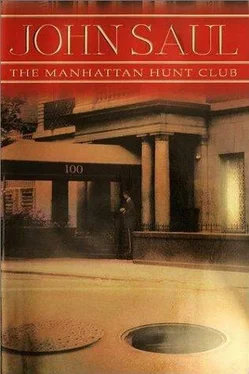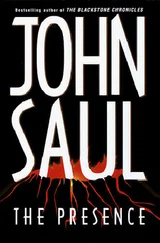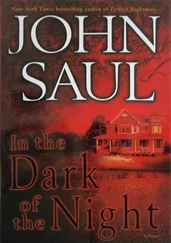It seemed Perry Randall had been the victim of a mugger.
Carey Atkinson had committed suicide in the face of a failing marriage, mounting debts, and a looming scandal in the Police Department.
Monsignor Terrence McGuire had retreated to an isolated monastery in Tuscany.
Judge Otto Vandenberg had died of a stroke and Arch Cranston had succumbed to a heart attack a day later.
Eve Harris, however, had apparently simply vanished, and though for months afterward the media had indulged in endless-and ever more sensational-speculation as to what might have happened to her, even that story had eventually faded away.
The One Hundred, as anonymous as ever, silently filled the vacancies within their ranks.
The life of the city went on.
When the train reached 110th Street Jeff stood up and led his son to the platform. As they headed for the stairs to the surface, he glanced at the spot where Cindy Allen had been attacked.
The spot where the near destruction of his life had begun.
Nothing about that far corner of the station hinted at what had happened there almost six years earlier. Perhaps it was that very anonymity that gave him pause. He was still gazing at the blank white tile of the far wall when his son tugged at his arm.
"What's wrong, Daddy?" the little boy piped.
His son's voice pulled Jeff back from the past and he smiled down at Randy. "Nothing," he assured him, swinging the boy up into his arms and starting quickly up the stairs. "Nothing at all."
The anxiety of being in the subway evaporating in the daylight, Jeff lowered his son to the sidewalk, but didn't let go of his hand as they waited for a break in traffic.
"You said you lived right by the subway," Randy said, looking around at the restaurants and shops that lined the street.
"Up there," Jeff replied, pointing to the back of the building where he could see the familiar window of his old apartment. "See? The brick building. I lived on the third floor."
Randy gazed solemnly up at the grimy structure. "I like our house better," he pronounced.
"So do I," Jeff agreed as the light changed and the sea of traffic finally parted, allowing them to cross. "I like it a lot better."
A couple of minutes later they came to the landing on the third floor, and Randy, recognizing the woman who stood in the apartment's open door, pulled loose from his father and ran toward her.
"Jinx!" he cried out, wrapping his arms around Jinx's neck as she lifted him up and planted a kiss on his forehead.
"Look at you! Almost grown up. Too big for a lollipop, right?"
"No!" Randy squealed. Wriggling back to the floor, he looked at his father. "Can I have one?" he pleaded.
"Just don't tell your mom," Jeff said, winking at the little boy. As Randy peeled the wrapping off the lollipop Jinx had produced from the pocket of her sweatshirt, Jeff glanced around the apartment. Even with his drafting table gone, it had the unmistakable look of students' quarters. The posters on the walls had changed, and the brick-and-board shelves he'd built were now filled with Jinx's textbooks instead of his own, but the paint was still peeling, the curtains hadn't been changed, and the carpet was even more worn than he remembered.
"Hey, be it ever so humble, there's no place like home," Jinx said, grinning as she read his thoughts. "In two more years, I graduate, and then I'm out of here." Her grin faded. "I didn't mean that the way it sounded. If you hadn't let me move in here-"
"You'd have found somewhere else to live," Jeff cut in, not letting her finish. "You could have stayed with Tillie."
Jinx shook her head. "I love Tillie, but if I'd stayed down there much longer…"
Her voice trailed off. They both remembered the rooms under the streets where Tillie still looked after her family. Most of the faces had changed. Robby had moved to the surface two years ago when the parents of one of his schoolmates found out where he was living and invited him to share their son's bedroom. It wasn't until they'd invited Tillie and Jinx for dinner and discussed the whole situation that Robby had finally agreed to try the surface again, and that had only been with the understanding that he could go back to Tillie any time he wanted to. He still went to visit Tillie at least once a week, and she emerged from her "co-op" every few months to have dinner with Robby's new family. But at the end of the evening, she always looked forward to getting back to the tunnels. "Too complicated up here," she insisted. "Too much to think about, too much to worry about."
"So?" Jeff asked Randy as the boy began licking his lollipop. "Sure you don't want to move in here?"
Randy shook his head. "It's ugly," he pronounced.
"Hey! Is that any way to talk about Jinx's house?"
"The boy's got good taste," Jinx said. "Let's go get lunch. I have two classes this afternoon, and then I've got to get to work."
"Still working both jobs?"
Jinx shrugged. "The way I figure it, I didn't work any jobs for so long that now I'm playing catch-up. By the time I graduate, I figure I'll be even, and then I can cut back to one job. And that one is going to pay more than waitressing."
Leaving the apartment, they went to the diner that had always been Jeff's favorite and found a table by the window so they could watch the activity on Broadway. The mix of people hadn't changed much since Jeff had lived in the neighborhood: mostly students with a lot of university faculty and staff mixed in. But there were others as well-tourists and shoppers and people just prowling the city.
And always the homeless.
An old woman-nearly indistinguishable from Tillie to a casual observer-pushed an overflowing shopping cart, and down the street three shabbily dressed men sat on the sidewalk, their backs resting against a wall, panhandling for change.
For a long moment both Jinx and Jeff gazed at them in silence, and it was finally Jeff who uttered the thought that was in both their heads.
"Do you suppose it's still going on?"
Seconds ticked by as Jinx said nothing, but at last she shook her head. "It was Ms. Harris," she said. "She was the one who passed out the money, and without the money, it never would have worked."
"Ever wonder what happened to her?"
Jinx's expression darkened. "I'm just glad she's gone."
Half an hour later Jeff and Randy were back in the subway station, waiting for a train to take them back downtown. "Who's Ms. Harris?" Randy asked, looking up at his father.
Jeff hesitated, then said, "Just someone we used to know, a long time ago."
"Was she a friend of Auntie Jinx's?"
A southbound train roared into the station. Jeff clutched tight to Randy's hand as the crowd of departing passengers swirled past them, then helped him step onto the train. "No," he said as the doors closed. "Ms. Harris wasn't a friend of Auntie Jinx's. She wasn't a friend of anyone's."
The train started to move and Jeff reached up with his free hand to grab the railing above his head. For a fleeting second, he saw someone peering at him through the window from the platform.
A woman, her face nearly lost in the folds of a ragged shawl.
He glimpsed her face for only a few fleeting seconds, and yet it terrified him. It was a face that looked as if it had been attacked. The skin was deeply scarred, the features distorted and twisted. It reminded him of the tunnels and the time he'd spent in them, seeing people who had been attacked by other people, or rats, or insects, or alcohol and drugs, or simply by life itself.
It was a face that was universal in the tunnels.
It was the eyes that he recognized.
They were the same eyes that had looked at him during the one moment when he'd thought a stranger might choose to help him.
And that person had turned away.
Читать дальше












